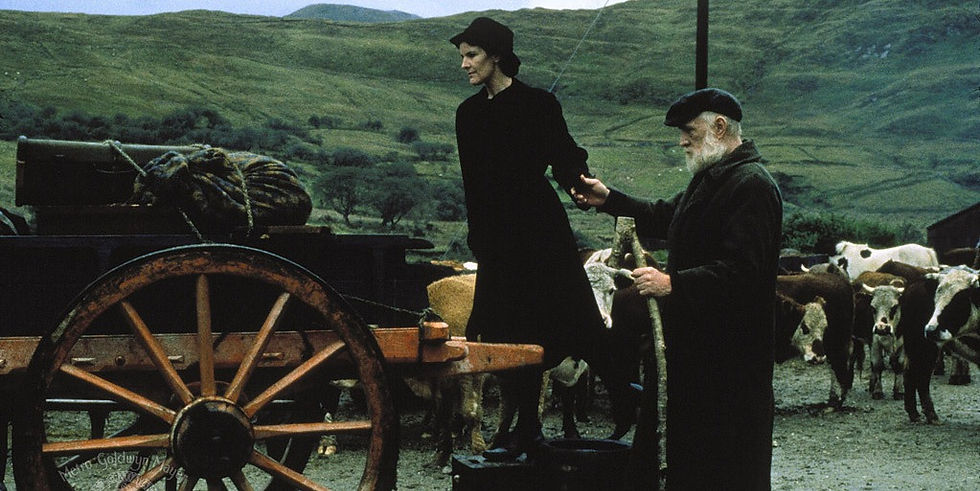The National Film of Ireland
- Rua Fay

- Mar 16, 2024
- 3 min read
(In honor of St. Patrick's Day, this article will also be published in Irish)
Across the globe, there are several countries known for their illustrious film scene, India, France, The United States, and many others, but a country you rarely hear get brought up in film conversations is Ireland. The Emerald Isle has made numerous contributions to modern culture in terms of literature and music, but its film industry is not a worldwide contender. That being said, there are several films in Ireland that are held in extremely high regard by those who live there. Some of those being, My Left Foot, The Wind That Shakes the Barley, and the recent Banshees of Inisherin. But if you ask an Irish person what the best Irish film is, they'll likely answer with a film you've never heard of... The Field.

The Field is a 1990 film directed by Jim Sheridan, a renowned Irish director who also made My Left Foot and In The Name of the Father. It is based on the stage play of the same name by John B. Keane. It is set in the village of Leenaun, on the edge of Galway and Connemara. The Field follows the story of farmer, Bull McCabe, a man known for being notoriously protective over the field he has rented for years. One day the widow who owns the field puts it up for auction, what follows is a tale of stubbornness, rage, family, and even murder.
The Field is most well known for its lead performance by Limerick native, Richard Harris, who received an Oscar and a Golden Globe nomination for his work in the film. Other than that, The Field has remained largely forgotten by everyone but the Irish, and that's probably because it's a great representation of Irish culture, landscape, and most of all, temperament. It's a tale that a lot of people can relate to, regardless of nationality, to have something you love so much be taken away from you, and doing whatever you can to get it back. There are various cultures that can relate to this, most of all the Irish, a country that was described by Sinéad O'Connor as "a child that's been battered." Since the country's inception, the Irish have gone through war, loss of land, exploitation, famine and even genocide, at the hands of the British government. As a character, Bull McCabe has to deal with his beloved field being taken away by an American, who wants to turn it into a power plant, sound familiar? It's a frustrating tale that has played out far too many times throughout history. The most iconic quote from the film also happens to be "Go home, Yank!"
It's not a far reach to assume that Bull McCabe as a character represents Ireland as a whole, and their many struggles with their Eastern neighbors throughout the years. But he's also a great representation of Irish culture, especially concerning men. Irish men are encouraged to put on a display of stoicism, and things like suicide or depression are seen as cowardice or a "waste." Bull McCabe takes this to the extreme by literally committing murder instead of talking out his problems, whether that be on an animal or a human being.

From my experience, Irish people are very protective over The Field and still complain about its score of 43% on Rotten Tomatoes. A lot of people attribute this to American and British critics who simply didn't understand the film. For thousands of people across Ireland, The Field is a very nostalgic film, especially for older viewers. Every time it's broadcasted on Ireland's public broadcasting network, RTE, countless households sit down to watch it with their family. Regardless of its low critic score, The Field will always hold a special place in the hearts of Irish people around the globe, which I think makes it a true success.
When it comes to St. Patrick's Day this year, indulge in all the green beer and trashy "Kiss Me, I'm Irish" clothing your heart desires, but if you want a taste of authentic Irish culture, The Field is a perfect place to start.



